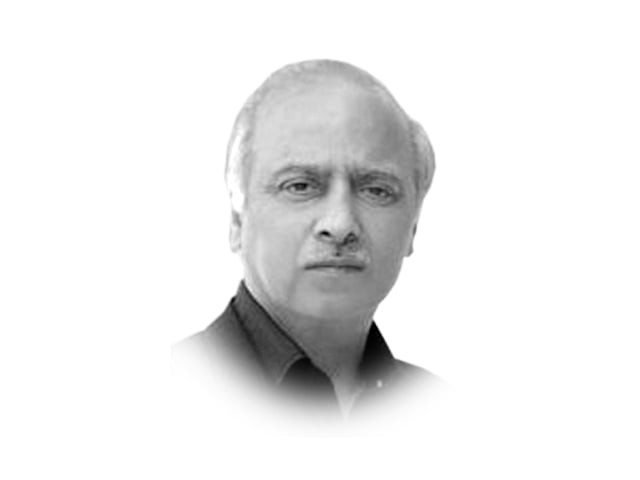Facing tough questions
The mindless pursuit of a policy that centred on non-state actors has been fatal indeed.

This policy primarily revolved around, and relied on, non-state actors who were co-opted into the defence doctrine to serve as the first line of defence as well as to provide ‘strategic depth’ to the armed forces on the eastern and western borders. Some were prompted, promoted and protected in the name of “national interest in Kashmir” and some tolerated and assisted to watch our back on the western border.
Ironically, the doctrine of strategic depth was the brainchild of former prime minister Zulfikar Ali Bhutto and the then head of Frontier Corps, Naseerullah Babar, had enlisted the services of about 1,333 Afghans — including Gulbudin Hekmetyar, Rabbani, Maulvi Khalis, Rasool Sayyaf. Youthful commandos trained at Cherat came in handy when General Ziaul Haq offered Pakistan as a bulwark against the Soviet troops in Afghanistan. The United States jumped at the offer and went on to spend almost a billion dollars which were funnelled through the ISI. All deluded themselves that they had defeated the evil communists and the Pakistanis decided to replicate this experience in Kashmir once Mikhail Gorbachev announced the withdrawal of his troops from Afghanistan by February 1989.
But the real rot began with the launch of the adventure in Kashmir through the JKLF (Jammu Kashmir Liberation Front), which was gradually overtaken by the Hizbul Mujahideen in 1990. In the years to come, not only did more outfits emerge but ‘guest organisations’ born during or after the Afghan jihad, also jumped into the fray. They not only adversely tainted Pakistan’s image but also weakened civil society vis-a-vis jihadi outfits which drew their strength from the intelligence apparatus. Lashkar-e-Taiba (LeT) stood out as the darling for its support to the insurgency in Kashmir.
Little surprise, therefore, that the LeT even today stands at the centre of Indo-Pakistani tensions, not only for violence in Kashmir but also for the Mumbai carnage in November 2008 and the earlier attack on the Indian parliament in 2001. That is why India insists the ISI was complicit in the Mumbai attacks and continues to demand quick trial of people arrested in connection with them. It also wants conclusive action against the LeT.
Pakistan, on the other hand, offers its own reasons for the delays, thereby creating a situation that hardly helps both countries move forward and jointly take on the terrorists. Highly placed officials of the Musharraf era admit that until the general’s exit, the establishment treated Lashkar-e-Taiba and some Afghan groups as “strategic assets” — a hedge for circumstances arising out of an eventual western withdrawal from Afghanistan. Another consideration was to avoid being pushed into the corner by India, despite the commitment in January 2004 not to allow its soil to be used against India. This commitment fell victim to disagreements within the establishment, with one group saying “they are our strategic assets; the other saying no, they are also Pakistanis. So action against Lashkar-e-Taiba, for instance, remained wanting as far India was concerned.
Interviews, statements, and personal interactions in important capitals suggest that all those who matter in policymaking refuse to accept the Pakistani position on Kashmiri groups, including the LeT. They are also skeptical of Islamabad’s stand on the Haqqani network.
Pakistan is being increasingly viewed as a country whose inflexibility has brought crippling economic and political crisis upon it. Viewed against perceptions abroad and weighed against the current perilous circumstances, Pakistan’s civilian and military elite needs to undertake a cost-benefit analysis of its India and Afghan policies. These godzillas — born out of the anti-Soviet jihad mounted by the CIA and ISI together — are indeed now eating into the very vitals of the state of Pakistan. Sparing, or even tolerating, these godzillas for fear of backlash has only added to the perils of the country.
The expedience of the United States, the self-serving and indifferent policies of the military and civilian elite, and the mindless pursuit of a policy that centred on non-state actors has been fatal indeed.
Published in The Express Tribune, December 22nd, 2010.













COMMENTS
Comments are moderated and generally will be posted if they are on-topic and not abusive.
For more information, please see our Comments FAQ